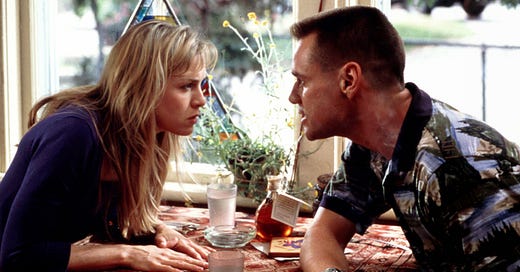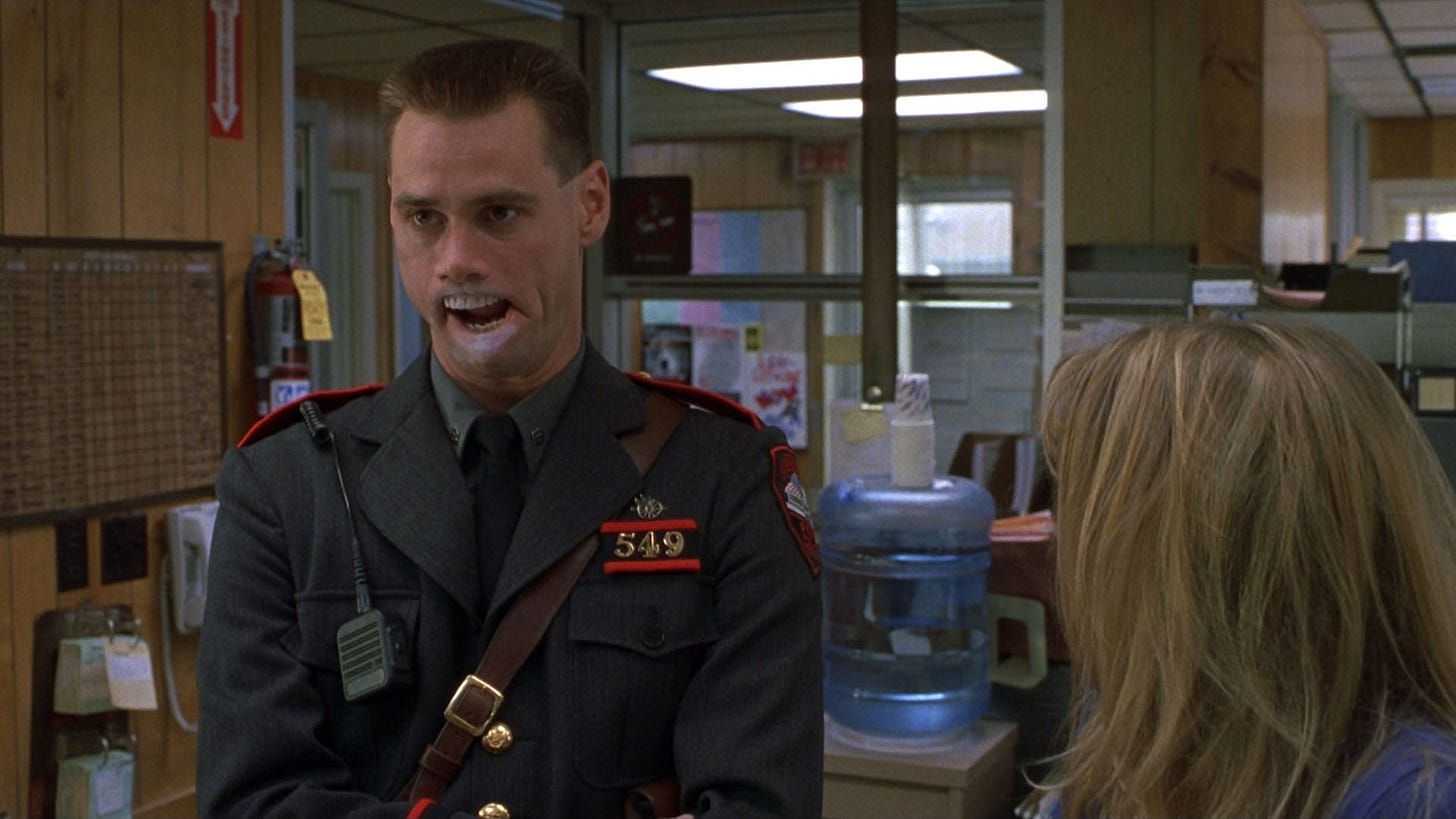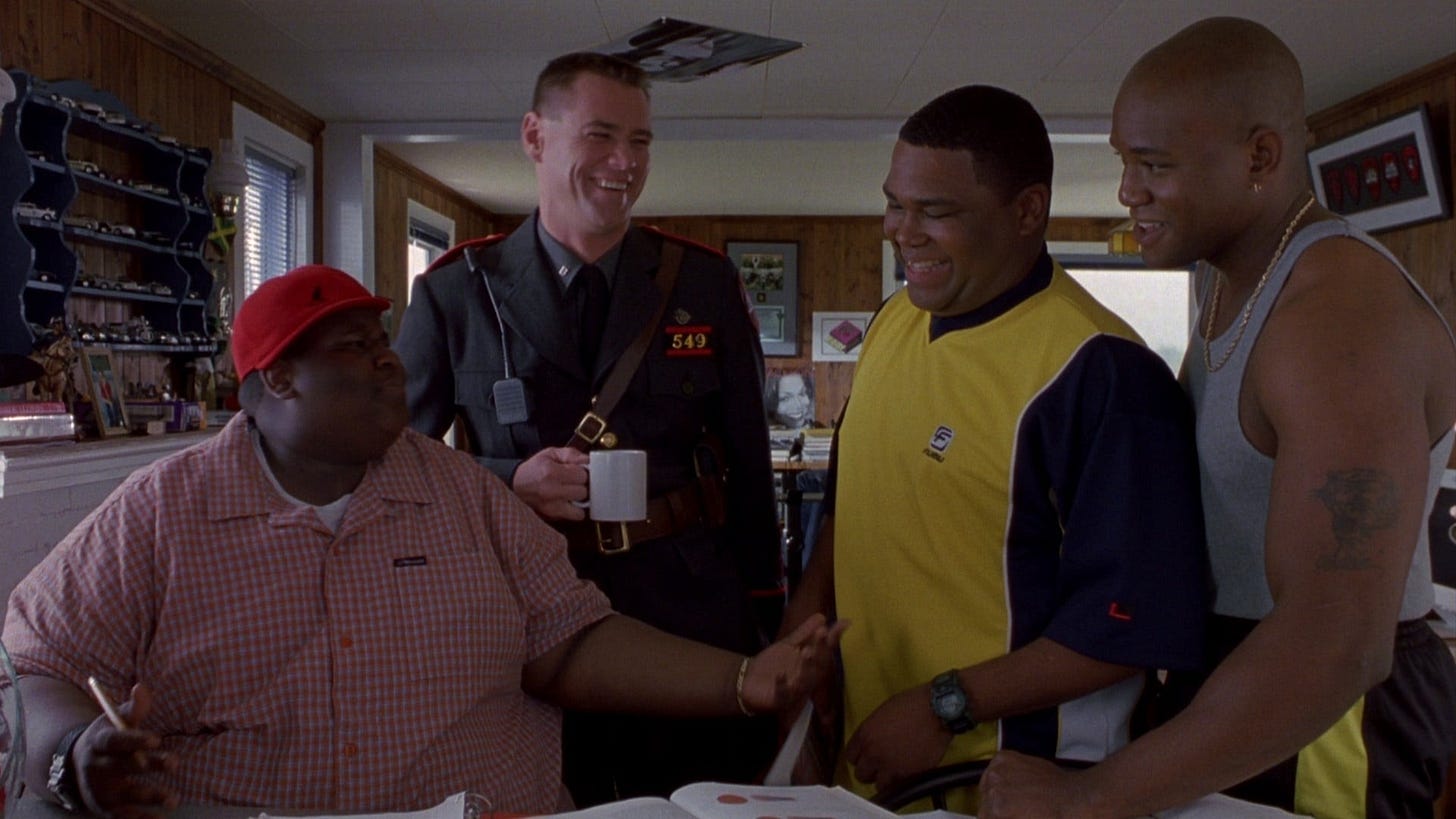Me, Myself & Irene (2000)
3/10
Jim Carrey ruled the Hollywood roost in the ’90s. While he made some good movies afterwards, Carrey’s popularity and box office appeal never reached the same heights they did during Bill Clinton’s presidency. If I had to pinpoint a moment when the tide began to turn, it would be Me, Myself & Irene. Many would point to The Cable Guy in 1996 as his first misstep, but I’ve always loved that movie and still think it’s extremely underrated. Carrey’s performance as Andy Kaufman in Man on the Moon was better than the film itself. Speaking as a child of the ’90s for whom Jim Carrey could no wrong after the 1994 triple-whammy of Ace Ventura: Pet Detective, The Mask, and Dumb and Dumber, Me, Myself & Irene was the first Carrey flick I didn’t see in theatres.
On paper the film seems promising. Me, Myself & Irene reunites Carrey with the Farrelly brothers, the same writing and directing team behind all-time comedy classic Dumb and Dumber. It has a high-concept premise that seems tailor-made for the star’s rubber-faced mugging while also allowing him to do some real acting. Carrey plays Rhode Island state trooper Charlie Baileygates, who after years of suppressing his feelings of inner rage develops a second personality: the violent, lecherous, and psychotic Hank. The film partners Carrey with a capable female lead in Renée Zellweger, as titular love interest Irene Waters. It repeats aspects of the Dumb and Dumber formula, like a road trip plot and a soundtrack full of ’90s rock, with the odd twist here that eight of them are covers of Steely Dan songs.
Unfortunately, most of it falls flat. While they have their moments, neither Charlie nor Hank are all that funny or interesting, which comes as a shock for a performer as talented at physical comedy and improvisation as Carrey. Hank especially feels like a miscalculation. Carrey adopts a grizzled Clint Eastwood-style whisper that feels like a parody of actors doing the Batman voice. The dull and by-the-numbers plot is given more focus than it needs. The romance between Carrey and Zellweger’s characters never really gels, despite mild chemistry between the two leads.
Me, Myself & Irene also has plot elements that can make for awkward viewing, depending on the audience. Suffice it to say they combine cuckoldry and racist stereotypes. Don’t take my word for it: historian Andrew Kettler has an entire essay on Me, Myself & Irene that appears in the anthology The Encyclopedia of Racism in American Films. Still, I’ll admit the scene of Charlie watching Richard Pryor and Chris Rock with his sons is pretty funny, as are nuggets of fatherly advice such as “You know the rules: No bitches after 11.”
The movie is sporadically amusing. Hank’s first appearance generates some chuckles. There are a few funny scenes like Charlie’s response to a cow on the road, or when he shares a bed with albino waiter “Whitey” (Michael Bowman) who shares some disturbing revelations. Carrey’s physical comedy is still capable of wringing laughter out of the viewer, such as Charlie’s expression when suffering extreme dry mouth, or when Charlie and Hank struggle for possession over his body. Give Carrey credit for his ability to switch on a dime between the two personas, even if the latter scenes are inferior to Edward Norton’s fight with himself in Fight Club.
Overall, though, Me, Myself & Irene is a disappointing slog. The characterization of a cop who is not open enough in expressing his anger feels curious given the reality of police terror and brutality. The plot is boring. The main characters have little spark. Chris Cooper makes for a dull villain and his character resolution seems to take place offscreen. The product placement for companies like AmTrak, Coca-Cola, and Ben & Jerry’s is obtrusive, the constant barrage of ’90s rock songs on the soundtrack grating. Most damning of all, long periods of time pass without any laughs—the worst thing you can say about a comedy.






